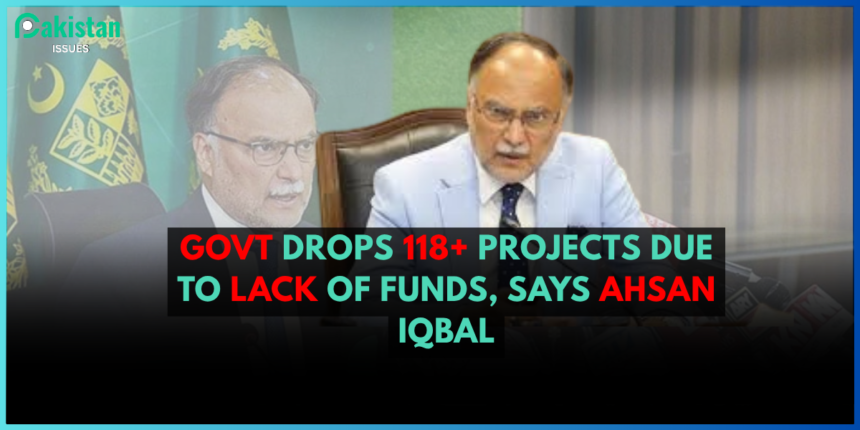Pakistan’s Planning Minister Ahsan Iqbal has revealed that more than 118 development projects have been dropped due to financial constraints. Speaking during a recent briefing, he said the government had no choice but to trim the list to focus only on essential schemes.
“This wasn’t easy,” he stated. “But we can’t afford to spread resources too thin anymore.”
The cancelled projects were originally part of the Public Sector Development Programme (PSDP). Many were either delayed, underfunded, or seen as low priority. With Pakistan under pressure to reduce spending, these cuts were made to control unnecessary outflows.
Iqbal stressed that the government’s focus remains on critical areas — education, energy, water, and digital growth. He said that investing in every proposal on the table is just not realistic right now.
“We had to look at what really matters,” he added. “If a project didn’t serve national interest clearly, it couldn’t move forward.”
The Planning Commission reviewed each project based on performance, strategic value, and whether it was feasible in the current climate. Those that didn’t meet the criteria were shelved.
Some critics have raised questions about transparency. There’s concern that certain areas might be more affected than others. But Iqbal pushed back, saying the decisions were based on data, not politics.
“This is about survival, not favoritism,” he said.
Pakistan’s economy has been under pressure for months, with rising inflation and shrinking reserves. Global lenders have repeatedly urged the government to cut waste and fix its fiscal management.
Iqbal said this pruning of projects isn’t a step back — it’s an effort to clean up. “We’re not saying no to development,” he clarified. “We’re saying yes to smarter development.”
The new PSDP, expected soon, will reflect this changed approach: fewer projects, more focus, better planning.










